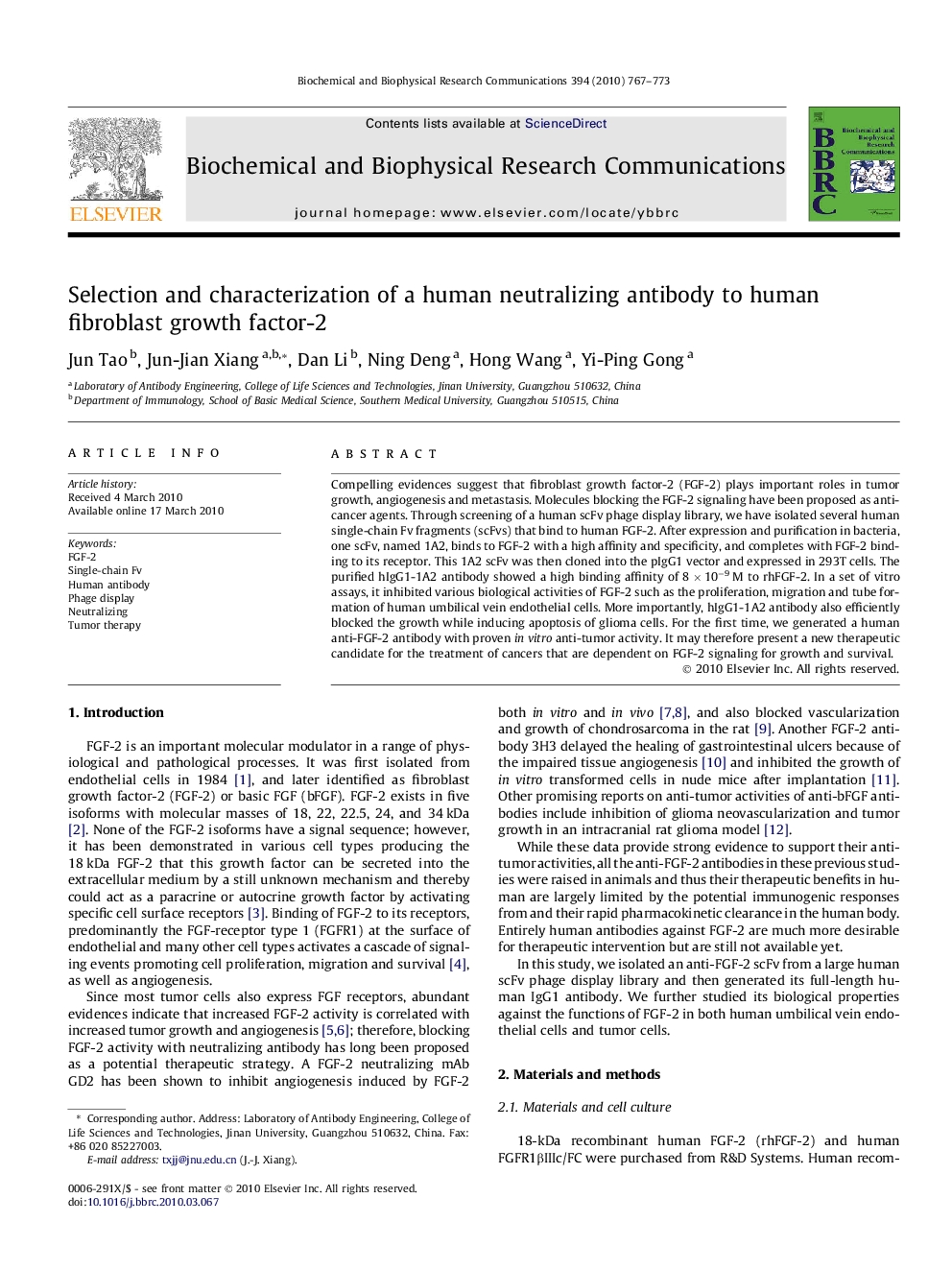| Article ID | Journal | Published Year | Pages | File Type |
|---|---|---|---|---|
| 1931983 | Biochemical and Biophysical Research Communications | 2010 | 7 Pages |
Compelling evidences suggest that fibroblast growth factor-2 (FGF-2) plays important roles in tumor growth, angiogenesis and metastasis. Molecules blocking the FGF-2 signaling have been proposed as anticancer agents. Through screening of a human scFv phage display library, we have isolated several human single-chain Fv fragments (scFvs) that bind to human FGF-2. After expression and purification in bacteria, one scFv, named 1A2, binds to FGF-2 with a high affinity and specificity, and completes with FGF-2 binding to its receptor. This 1A2 scFv was then cloned into the pIgG1 vector and expressed in 293T cells. The purified hIgG1-1A2 antibody showed a high binding affinity of 8 × 10−9 M to rhFGF-2. In a set of vitro assays, it inhibited various biological activities of FGF-2 such as the proliferation, migration and tube formation of human umbilical vein endothelial cells. More importantly, hIgG1-1A2 antibody also efficiently blocked the growth while inducing apoptosis of glioma cells. For the first time, we generated a human anti-FGF-2 antibody with proven in vitro anti-tumor activity. It may therefore present a new therapeutic candidate for the treatment of cancers that are dependent on FGF-2 signaling for growth and survival.
